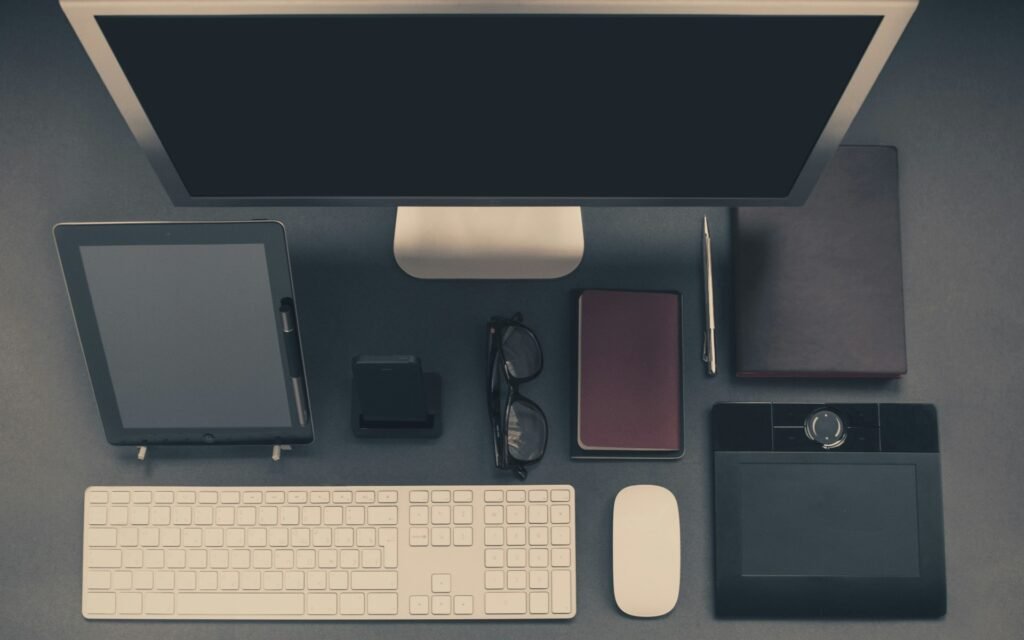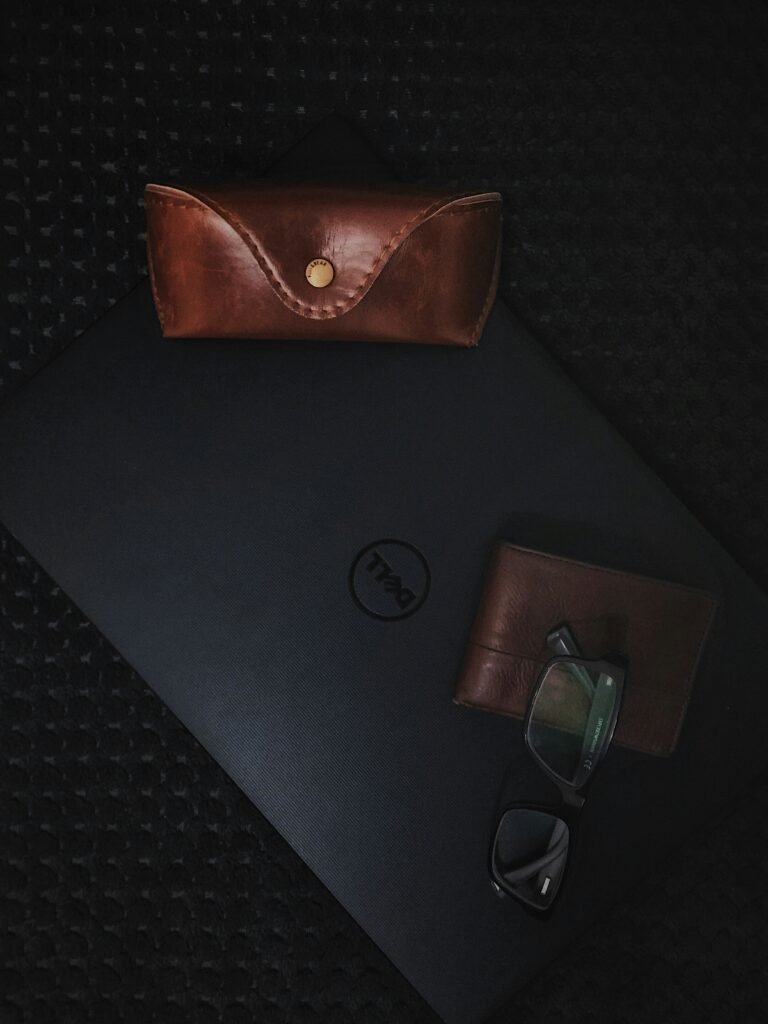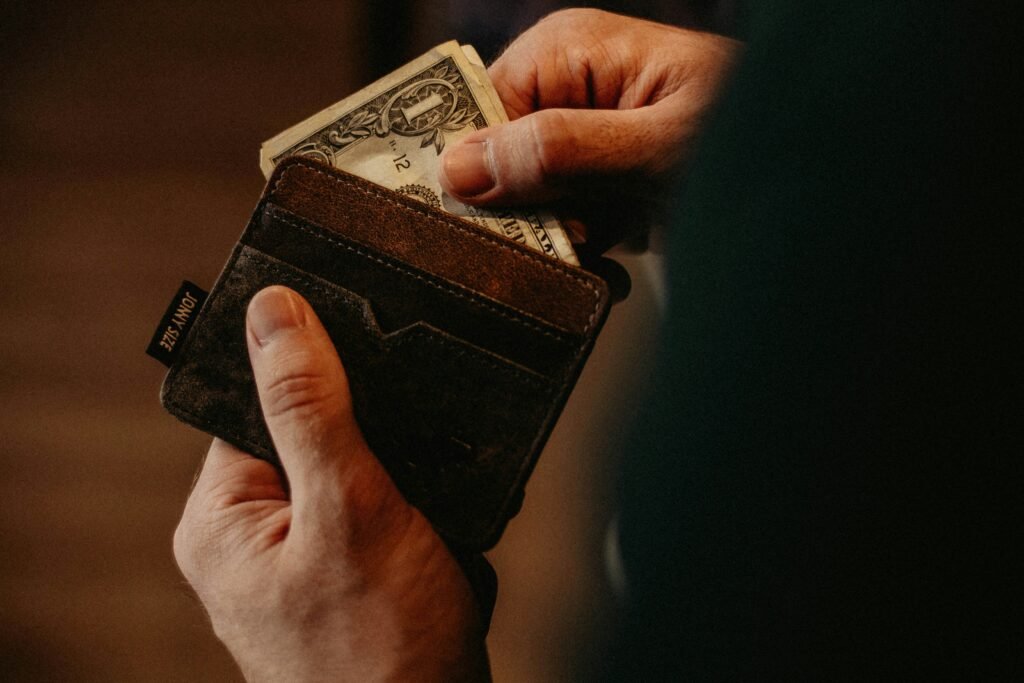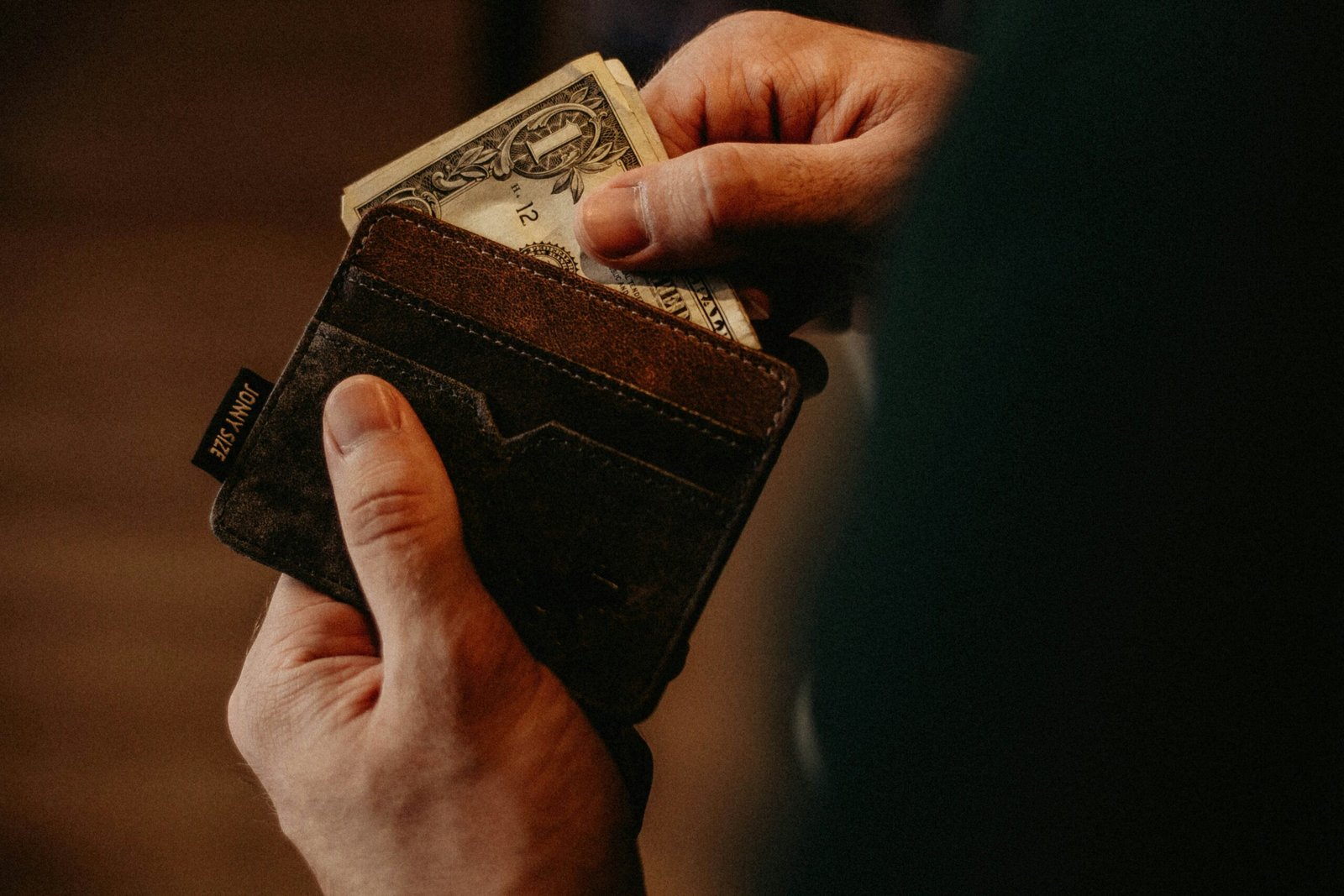If you’re on the hunt for a new wallet that will be your trusted companion for daily use, look no further. This article is here to help you navigate the overwhelming world of wallet options and find the perfect one to fit your needs. From sleek minimalist designs to spacious organizers, we will explore some essential tips that will help you make an informed decision and choose a wallet that will not only keep your essentials secure but also reflect your personal style. So, get ready to embark on a wallet adventure and find your perfect everyday companion!

This image is property of images.unsplash.com.
Material
When it comes to selecting an everyday wallet, material is an important factor to consider. Leather, nylon, polyester, and canvas are the most common materials used in the construction of wallets. Each material has its own unique qualities and characteristics.
Leather wallets are a timeless choice that exude elegance and durability. They are known for their longevity and ability to develop a rich patina over time. Leather wallets can withstand daily wear and tear, making them a reliable option for everyday use.
Nylon wallets, on the other hand, are lightweight and water-resistant. They are a great choice for those who prefer a more casual and sporty look. Nylon wallets often come in a wide variety of colors and patterns, allowing you to express your personal style.
Polyester wallets are another popular option for everyday use. They are durable, affordable, and easy to clean. Polyester wallets are often sleek and modern in design, making them a stylish choice for both men and women.
Canvas wallets offer a rugged and casual look. They are often made from heavy-duty cotton or canvas material, which provides durability and resistance to wear and tear. Canvas wallets are ideal for outdoor enthusiasts or individuals who prefer a more relaxed and laid-back style.
Before making a decision, consider your personal preferences and needs. Think about the look and feel you want in a wallet, as well as the level of durability required for your everyday activities. Choosing the right material will ensure that your wallet not only looks great but also lasts for a long time.
Size
The size of your wallet is another important consideration when choosing one for everyday use. Wallets come in various sizes, including slim, bifold, trifold, and front pocket styles. Each size offers different advantages depending on your needs and preferences.
Slim wallets are a popular choice for those who prefer a minimalist approach. They are designed to fit comfortably in your pocket without adding bulk. Slim wallets typically have fewer card slots and compartments, so they are best for individuals who carry only the essentials.
Bifold wallets are a classic choice that offers a balance between functionality and compactness. They have a hinge in the middle that allows the wallet to fold in half. Bifold wallets typically have multiple card slots, a note compartment, and sometimes a coin pocket. They offer more storage options compared to slim wallets while still maintaining a sleek profile.
Trifold wallets provide even more storage options with their additional fold. They have two hinges that allow the wallet to fold into three sections. Trifold wallets often feature multiple card slots, a larger note compartment, and a coin pocket. They are a great choice for individuals who prefer to carry a larger number of cards and want easy access to their belongings.
Front pocket wallets are specifically designed to be carried in the front pocket of your pants. They are usually slimmer and more compact than traditional wallets. Front pocket wallets typically have fewer card slots and compartments, making them perfect for individuals who prefer a minimalist approach and want to avoid bulkiness.
Consider your lifestyle, the number of cards you carry, and your personal preference when selecting the size of your everyday wallet. Remember, a wallet that fits well in your pocket and meets your organizational needs will make your daily routine more convenient and enjoyable.

This image is property of images.unsplash.com.
Number of card slots
The number of card slots in a wallet is an important consideration to ensure that you have enough space for all your essential cards while avoiding unnecessary clutter. Consider your needs and the types of cards you carry regularly, such as credit cards, debit cards, ID cards, and membership cards.
It’s important not to go overboard with the number of card slots, as too many can make your wallet bulky and difficult to manage. Take the time to evaluate which cards you use regularly and which ones you can leave at home. This will help you determine the optimal number of card slots you need in your everyday wallet.
Ensure that your wallet has enough space for your essential cards, including a few extra slots for unexpected cards you may need on occasion. If you carry a lot of cards, look for wallets with expandable slots or compartments that can accommodate your needs.
Some wallets also have clear ID windows, making it easy to access and display your identification cards without having to remove them. This feature can be especially useful if you frequently need to show your ID or security pass.
By considering your needs and carefully selecting the number of card slots, you can ensure that your everyday wallet is organized, efficient, and clutter-free.
Coin pocket
Deciding whether or not you need a coin pocket in your everyday wallet is another important consideration. While some individuals prefer to carry coins separately in a coin purse or pocket, others find it convenient to have a dedicated compartment in their wallet.
Consider the convenience factor when deciding if you need a coin pocket. If you frequently find yourself using coins for vending machines, parking meters, or public transportation, having a coin pocket in your wallet can save you the trouble of carrying an additional accessory.
When selecting a wallet with a coin pocket, consider the options available. Some wallets have a zipper pocket for coins, while others have a snap closure or a dedicated slot for holding coins. Think about which option would be most convenient for you based on ease of access and security.
Keep in mind that a coin pocket may add bulk to your wallet, so if you prefer a slimmer look, you may want to opt for a design without a dedicated coin compartment.
Consider your personal habits and lifestyle to determine if a coin pocket is a necessary feature for your everyday wallet.

This image is property of images.unsplash.com.
Money clip or elastic band
Deciding between a money clip or an elastic band is a matter of personal preference when it comes to securing your cash. Both options offer their own benefits, so consider your needs and habits before making a decision.
A money clip is a simple and sleek accessory that securely holds your cash. It is typically made of metal and easily attaches to the inside of your wallet. Money clips offer quick and easy access to your money, making them a convenient option if you often need to make cash transactions.
On the other hand, an elastic band provides a flexible and versatile solution for securing your cash. It is usually made of durable elastic material and can be attached to the outside or inside of your wallet. Elastic bands are adjustable and can expand or contract depending on the amount of cash you need to carry.
Consider the ease of use when choosing between a money clip and an elastic band. Some people find money clips more secure and easier to handle, while others prefer the simplicity and flexibility of an elastic band.
Different wallet designs offer various options for securing your cash, so explore different styles to find the solution that best suits your needs and preferences.
RFID blocking feature
Protecting personal information is becoming increasingly important in the digital age. RFID blocking is a feature offered in some wallets to help prevent unauthorized scanning of your credit cards, debit cards, and ID cards.
RFID stands for Radio Frequency Identification, and it allows contactless technology to transmit data wirelessly. Unfortunately, this convenience also opens the door to potential security risks. Criminals equipped with RFID scanners can potentially skim your personal information without ever physically touching your cards.
Consider whether or not you need the RFID blocking feature in your everyday wallet. If you frequently use contactless payment methods or public transportation cards with RFID technology, having this feature can add an extra layer of security and peace of mind.
When selecting a wallet with RFID blocking, it’s important to understand that not all wallets are created equal in terms of the level of protection they provide. Look for wallets that specify the level of RFID blocking, such as 100% or high-frequency blocking. This information will help you choose the right level of protection for your specific needs.
Remember, this feature is not necessary for everyone, so consider your personal circumstances, level of concern, and the prevalence of RFID technology in your daily life before making a decision.
Durability
Durability is a crucial factor to consider when choosing an everyday wallet. You want a wallet that can withstand the rigors of daily use without deteriorating or falling apart. Two key aspects to evaluate durability are stitching quality and material durability.
Stitching quality is an indicator of how well the wallet is constructed. Look for wallets with sturdy stitching that is tight and evenly spaced. Loose or uneven stitching can compromise the durability of the wallet and lead to premature wear and tear.
Material durability refers to how well the wallet’s material can withstand daily use. Leather is known for its durability and ability to withstand the test of time. Nylon and polyester wallets should be made from high-quality materials to ensure longevity. Canvas wallets should be made from heavy-duty canvas material that is resistant to tearing and abrasions.
Checking customer reviews can provide valuable insights into the durability of a wallet. Look for reviews that mention the long-term performance and durability of the wallet. If multiple customers report issues with the stitching or material, it may be a sign to look for a different brand or model.
Investing in a durable wallet may initially cost more but can save you money in the long run by avoiding frequent replacements. A durable wallet will be able to accompany you on your everyday adventures, ensuring your belongings stay safe and secure.
Brand reputation
Considering the reputation of the brand is an essential aspect of selecting an everyday wallet. Researching trusted brands can give you confidence in the quality and reliability of the wallet you choose.
Look for brands that have a long history of producing high-quality wallets. Established brands often have a reputation to uphold and are more likely to use durable materials and craftsmanship in their products.
Additionally, consider if the brand offers any warranties or guarantees on their wallets. A warranty or guarantee can provide peace of mind knowing that the brand stands behind the quality of their product. It also shows that the brand has confidence in their wallet’s durability and performance.
Reading customer reviews is another valuable way to gauge the reputation of a brand. Look for reviews that mention positive experiences with the brand’s products, as well as any negative experiences or issues to be aware of. By doing your research, you can make an informed decision and choose a wallet from a reputable brand that meets your needs.
Price range
Having a budget in mind is important when selecting an everyday wallet. Wallets can vary greatly in price depending on the brand, material, and features. Establishing a price range will help you narrow down your options and find the best value for your money.
Consider your budget and what you are comfortable spending on a wallet. Remember that a higher price does not always guarantee a better quality wallet. Sometimes, you can find affordable wallets that offer the same level of durability and functionality as more expensive options.
While it may be tempting to opt for the cheapest wallet available, keep in mind that quality and durability often come with a higher price tag. It’s worth considering a long-term investment in a higher-priced wallet that will last for several years, rather than having to replace a cheaper wallet more frequently.
Strike a balance between your budget and the value provided by the wallet. Consider the materials used, the brand reputation, and the features included to determine the best wallet within your price range.
Functional design
Functional design is an aspect that can greatly enhance the everyday use of your wallet. Consider the layout of the wallet and how well it suits your organizational needs and preferences.
Pay attention to the access to compartments. It’s important to have ease of access to your cards, cash, and other belongings. Wallets that have well-designed compartments and slot placements can make retrieving and storing items more intuitive and efficient.
Consider the ease of use when selecting a wallet. Some wallets have features like ID windows, quick access card slots, or thumb notches for easy card retrieval. These small design considerations can greatly improve the everyday functionality of your wallet.
Think about how you plan to use your wallet and whether you need additional features such as a pen holder, key ring, or external pocket for quick access items. Wallets with a clear and well-thought-out design can streamline your daily routine and make managing your belongings easier and more enjoyable.
In conclusion, selecting an everyday wallet requires thoughtful consideration of various factors. Material, size, number of card slots, coin pocket, money clip or elastic band, RFID blocking feature, durability, brand reputation, price range, and functional design all play a role in finding the perfect wallet for your everyday needs.
Take the time to evaluate your personal preferences, lifestyle, and budget to make an informed decision. Remember, a well-chosen wallet can be a trusty companion that keeps your essentials secure, organized, and easily accessible.
